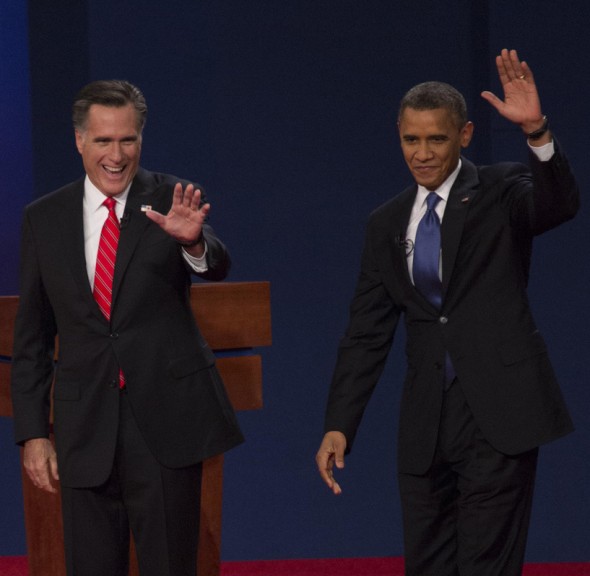At the debate the candidates made many promises and threw around many big numbers.
Obama promised $4 trillion in deficit reduction.
The Washington Post found the reduction will come to more like $3.8 trillion and the savings will in part come from not spending money on the wars in Iraq and Afghanistan. Money that the U.S. did not budgeted to spend anyway.
Romney promised to cut all programs that aren’t worth borrowing from China to pay for and to create 12 million new jobs with rising incomes.
Interestingly Moody’s analytics predicts these jobs will be created no matter who is president.
So it’s clear that both of these candidates are trying to take responsibility for natural changes in the economy and history. A rather dated, but still very applicable analysis, from columnist Robert J. Samuelson points out that the control the presidents have on the economy is incredibly hard to measure and in most cases presidents have to assume the responsibility of their predecessor’s decisions for good or ill.
Some, like Clinton, get to assume the responsibility for a good period in economic history, in his case, low oil prices and the internet boom. Others, must try to dodge responsibility for high inflation due to expansion of government employment programs which happened before they took office.
But no matter how the politicians spin the numbers, it’s important to remember that neither has as much immediate power over the economy as they claim, or as the American people would like to believe.
But the half truths told in the debate were so extensive, the debate seems more like a contest of well spun lies and showmanship, rather than leadership.

